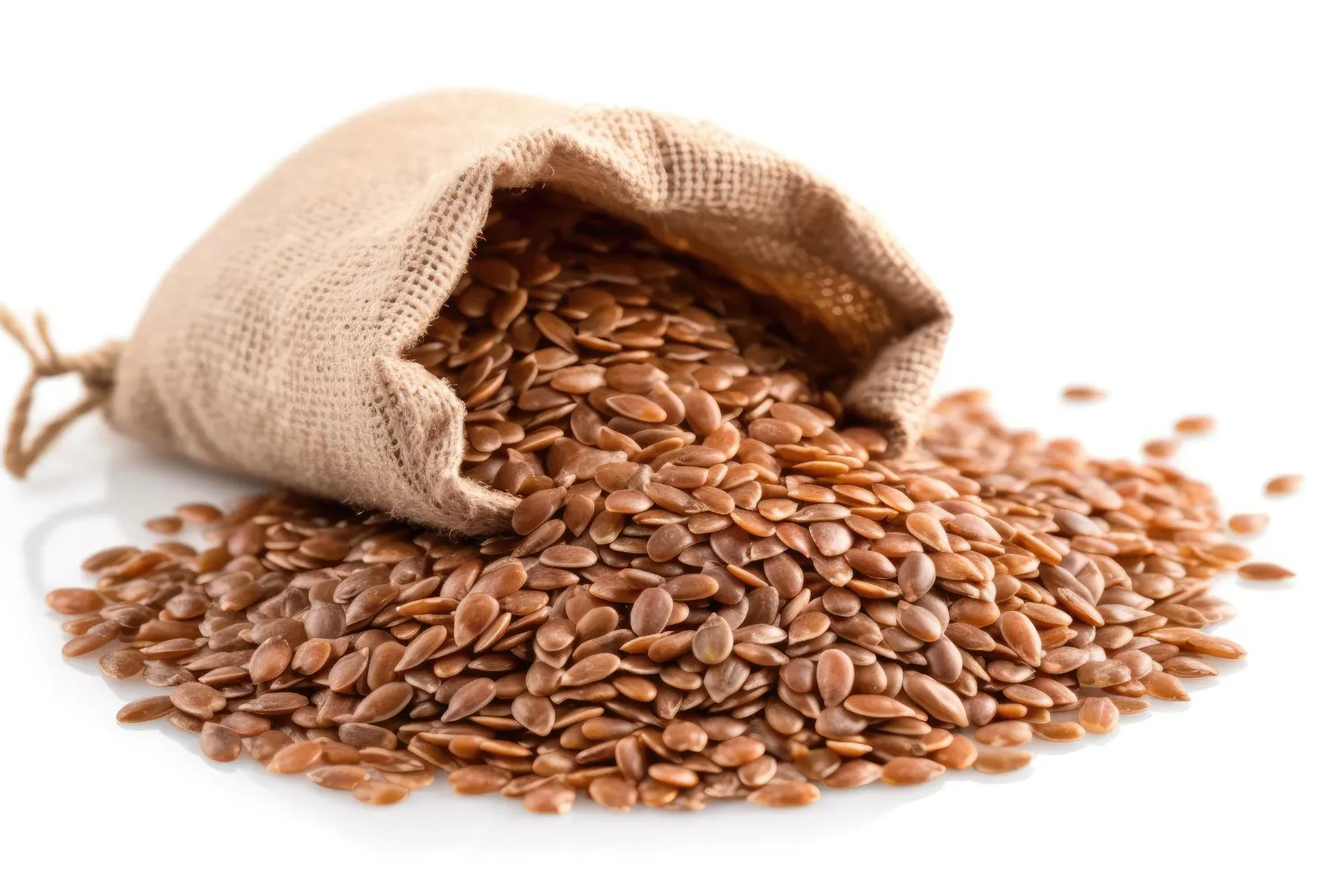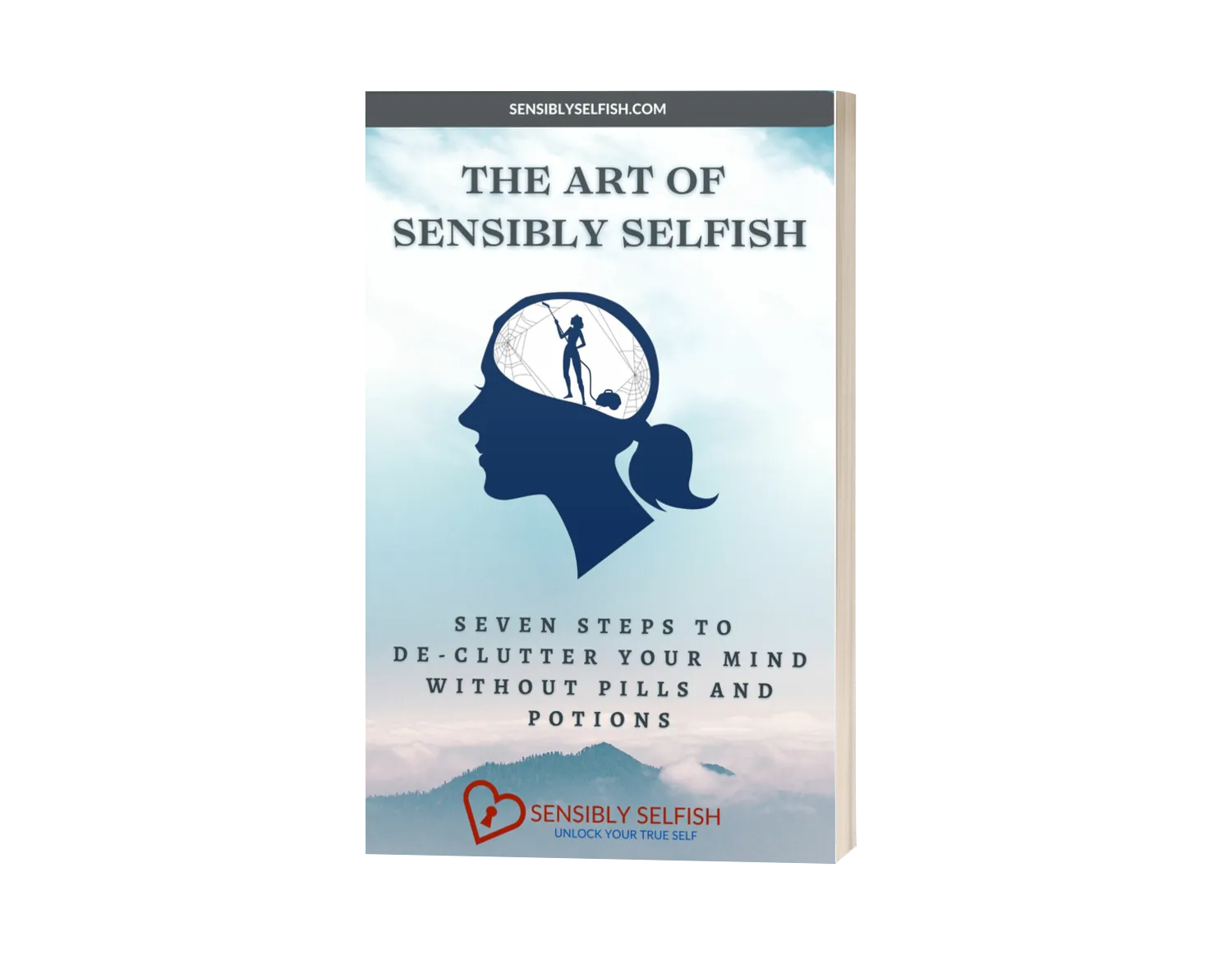Empower Your Transition
Natural Menopause and Holistic Alternatives To HRT

[Toc]
Life in your mid-40s, has you juggling career, family, and other unexpected curveballs that adulthood throws your way. Then, the subtle yet undeniable changes begin with your body itself – the hormonal tide of menopause. Weight gain, mood swings, brain fog, heavy periods, sore breasts, poor sleep, and a myriad of other signs that life will never be the same.
Midlife is not for the fainthearted. Hormonal hell is a time that deserves acknowledgment, and in this post, we'll explore a path less traveled: natural alternatives to Hormone Replacement Therapy (HRT).
Hormone Replacement Therapy (HRT) has long been a go-to for managing menopausal symptoms. In recent years the demand for HRT has increased by 35% in the UK alone. However, the quest for balance and well-being prompts some women to seek natural alternatives, be it concerns about side effects or a preference for embracing this chapter of life in a more natural and holistic way.
The Quest for Balance
Working with 1000s women over the past twenty years, I've found that the desire for hormonal balance during this phase of life is both universal and deeply personal. The ebb and flow of hormones impact not just our bodies but our daily lives, relationships, and self-perception.
It's essential to understand why women over 45 might contemplate alternatives to HRT. Whether it's the fear of potential side effects, a philosophical choice to embrace the natural course of life or a desire for a more personalized approach, the motivations are as diverse as the women themselves.

Understanding Hormonal Changes
Menopause is not a one-size-fits-all experience; it's a nuanced journey with distinct hormonal changes. From fluctuating estrogen levels to the intricacies of progesterone, each woman's body dances to its unique rhythm during this transformative time.
Think of your hormones as the conductors of a symphony, each playing a crucial role in the overall harmony of your body. Just as a symphony requires balance, so too do your hormones, and achieving that balance is key to navigating the menopausal landscape.
What is HRT?
Hormone Replacement Therapy (HRT) is a medical treatment that involves supplementing or replacing hormones in the body, typically to alleviate symptoms associated with hormonal imbalances or deficiencies. In the context of women's health, HRT is often used to address symptoms related to menopause.
During menopause, which usually occurs in women around the age of 45 to 55, there is a natural decline in the production of hormones like estrogen and progesterone. This hormonal shift can lead to various symptoms such as hot flashes, night sweats, mood swings, vaginal dryness, and bone density loss.
HRT aims to mitigate these symptoms by providing the body with hormones, usually estrogen and progesterone, in a form that is either identical to or similar to those naturally produced by the body. There are different types of HRT, including estrogen-only therapy (ET) for women who have had a hysterectomy (removal of the uterus) and combined estrogen-progestin therapy (EPT) for women with an intact uterus.
It's important to note that while HRT can be effective in managing menopausal symptoms, it is not without potential risks and side effects. The decision to undergo HRT should be made in consultation with a healthcare professional who can assess an individual's medical history.
While HRT has its merits, concerns about synthetic hormones and potential health risks often loom large. Acknowledging these concerns lays the foundation for a thoughtful exploration of natural alternatives. Overall health, and the potential benefits and risks associated with the treatment. Additionally, some women may prefer to explore natural alternatives to HRT.

The Case for Natural Alternatives
Natural alternatives to HRT offer a different approach, one that resonates with the body's natural rhythms. From minimizing potential side effects to fostering a sense of empowerment, the benefits of exploring these alternatives extend beyond the physical realm.
Begin by taking a deep look at your lifestyle. Are you eating the right foods for hormonal harmony? Incorporate foods rich in omega-3 fatty acids, antioxidants, and phytoestrogens to nourish your body during this transformative phase.
Have you removed all toxic chemicals from your home? Have you investigated Autophagy and how your monthly cycle can be your greatest asset if used correctly? Small adjustments can yield significant results in managing menopausal symptoms.
Physical activity, including regular exercise and yoga, can be beneficial for managing menopausal symptoms. Exercise helps maintain bone density, alleviate mood swings, and improve overall well-being.
Practices like mindfulness meditation can help reduce stress and improve mental well-being during menopause. Stress management is crucial, as stress can exacerbate symptoms such as hot flashes and mood swings.
Natural Wonders
Mother Nature has provided an array of natural wonders with the potential to support hormonal balance. Below you will find a list yet always consult with healthcare professionals before adding new supplements or herbs to your routine, especially if you have existing health conditions or are taking medications.
Black Cohosh
Black Cohosh contains compounds with phytoestrogenic properties. Phytoestrogens are plant-derived substances that can mimic the effects of estrogen in the body. This can be beneficial for women experiencing a decline in estrogen levels during menopause.
One of the most common and bothersome symptoms of menopause is hot flashes. Black Cohosh has been studied for its potential to reduce the frequency and intensity of hot flashes, providing a natural and non-hormonal option for managing this symptom.
Red Clover
Red Clover is rich in isoflavones, which are a type of phytoestrogen. Isoflavones can interact with estrogen receptors in the body, helping to alleviate some menopausal symptoms linked to estrogen decline.
Declining estrogen levels during menopause can contribute to bone density loss. Red Clover has been explored for its potential to support bone health, which is particularly important for women as they age.
Evening Primrose Oil
Evening Primrose Oil is a source of gamma-linolenic acid (GLA), an essential fatty acid. GLA plays a role in the production of prostaglandins, which are hormone-like substances. Some women use Evening Primrose Oil to support hormonal balance during menopause.
Beyond hormonal balance, Evening Primrose Oil is also known for its potential benefits to skin and joint health, which can interest women experiencing changes in these areas during menopause.

Flaxseed
Linseed, also known as flaxseed, is a versatile and nutrient-rich seed that has gained attention for its potential health benefits, including its use during menopause. Here are some aspects to consider regarding the use of linseed for menopause:
Linseed is a rich source of phytoestrogens, specifically lignans. Phytoestrogens are plant compounds that can interact with estrogen receptors in the body. For women going through menopause, where estrogen levels naturally decline, the phytoestrogens in linseed may provide a mild estrogenic effect.
Some studies suggest that the lignans in linseed may contribute to a reduction in hot flashes, a common symptom of menopause. The exact mechanism is not fully understood, but the potential estrogenic activity of lignans is thought to play a role in mitigating these symptoms.
Beyond menopausal symptoms, linseed has been associated with cardiovascular health benefits. Menopausal women often face an increased risk of heart-related issues, and the omega-3 fatty acids and fiber in linseed may contribute to heart health.
Linseed contains nutrients like magnesium and phosphorus that are essential for bone health. As estrogen levels decline during menopause, maintaining bone density becomes crucial, and incorporating linseed into the diet may contribute to overall bone health.
The high fiber content of linseed can support digestive health, which is particularly relevant during menopause. Hormonal changes can sometimes affect digestion, and a diet rich in fiber can help alleviate constipation and promote a healthy gut.
Linseed can be added to the diet, such as ground flaxseed in smoothies, yogurt, or cereal. Whole linseeds can also be used in baking. It's important to note that while still containing some beneficial compounds, flaxseed oil lacks the fiber content found in whole or ground seeds.
Soy and Soy Products
Soy contains phytoestrogens called isoflavones, which can act as mild estrogen-like compounds. Some women find relief from menopausal symptoms by incorporating soy or soy products into their diet, such as tofu, soy milk, or edamame.
Dong Quai (Angelica sinensis)
Dong Quai is an herb traditionally used in Chinese medicine. It's often referred to as the "female ginseng" and has been used to address various women's health issues, including menopausal symptoms. Dong Quai is believed to have mild estrogenic effects.

Ginseng
Ginseng, particularly Panax ginseng, has adaptogenic properties that may help the body adapt to stress. Some women use ginseng to alleviate fatigue and support overall well-being during menopause.
Chasteberry (Vitex agnus-castus)
Chasteberry is known for its potential to balance hormones, particularly by influencing the pituitary gland. It may be used to alleviate symptoms such as hot flashes and mood swings during menopause.
Maca Root
Maca is a plant native to Peru, and its root has been traditionally used to support hormonal balance. Some women report improved energy levels, mood, and sexual function when using maca during menopause.
Rhodiola Rosea
Rhodiola is an adaptogenic herb that may help manage stress and fatigue. It could be beneficial for women experiencing mood swings or mental fatigue associated with menopause.
St. John's Wort
St. John's Wort is an herb commonly used for mood support. Some women find it helpful for managing mild to moderate depression or mood fluctuations during menopause.
Vitamin D and Calcium/Magnesium
Adequate intake of vitamin D and calcium is essential for bone health. As bone density can decline during menopause, ensuring sufficient levels of these nutrients is crucial. Sun exposure and dietary sources like fatty fish, dairy, and leafy greens are natural ways to obtain vitamin D and calcium/Magnesium.
The natural world offers a variety of options that some women find beneficial for managing symptoms associated with menopause. It's important to note that individual responses can vary, and it's always advisable to consult with healthcare professionals before incorporating new supplements or herbs into your routine. Here are some natural options that have been explored for their potential benefits during menopause:

Addressing Concerns and Questions
It's important to note that individual responses to natural methods can vary. Additionally, scientific research on the effectiveness of these supplements is ongoing, and women should consult with healthcare professionals before incorporating them into their routines. It's crucial to ensure these alternatives align with an individual's health status and overall wellness goals.
The mind and body are intricately connected, and nurturing your mental well-being is a cornerstone of embracing menopause gracefully. Skepticism about natural alternatives is understandable, and it's crucial to address these concerns head-on.
Always do your due diligence and explore evidence-based information to dispel doubts and empower you to make informed decisions about your well-being. Delve into scientific studies and expert insights to offer a nuanced perspective on the effectiveness and safety of natural alternatives. Knowledge is power, and arming yourself with accurate information is the first step in making choices aligned with your values.
Embracing the Journey
Menopause isn't a hurdle to overcome; it's a natural transformation to embrace. Celebrate the wisdom and resilience that this stage of life brings. As you navigate the changes, remember that self-acceptance is a powerful ally in this journey.
Hear from women who have walked this path, each forging their unique way through menopause. Their stories serve as beacons of inspiration, reminding us that this transition is not an end but the beginning of a new, empowered chapter.

Next Steps
From understanding hormonal shifts to exploring natural alternatives, we've traversed the landscape of menopause to empower you to make choices aligned with your well-being.
As you embark on this next stage of life, remember that you're not alone. Consult with healthcare professionals, connect with a supportive community, and approach menopause as a natural transformation deserving of celebration and self-love.
What have you learned about your hormones at this stage in life? Why not share in the comments below or come and join the Facebook group conversation?








